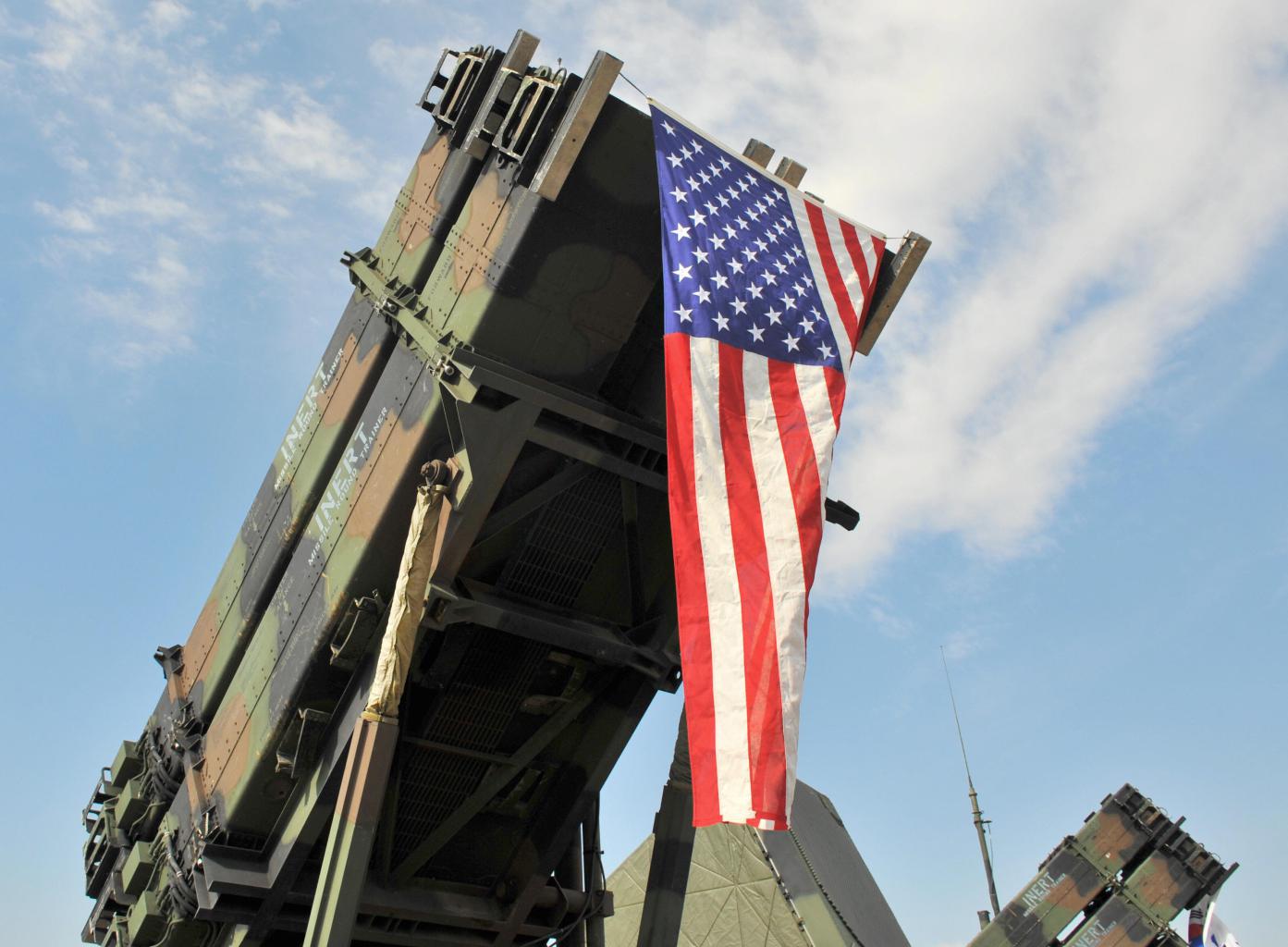
Foreign Policy: “Patriot Missiles Are Made in America and Fail Everywhere”
Yamanyoon
On March 25, the Yemeni forces in Yemen fired seven missiles at Riyadh. Saudi Arabia confirmed the launches and ”asserted” that it successfully intercepted all seven.
This wasn’t true. It’s not just that falling debris in Riyadh killed at least one person and sent two more to the hospital. There’s no evidence that Saudi Arabia intercepted any missiles at all. And that raises uncomfortable questions not just about the Saudis, but about the United States, which seems to have sold them — and its own public — a lemon of a missile defense system.
Social media images do appear to show that Saudi Patriot batteries firing interceptors. But what these videos show are not successes. One interceptor explodes catastrophically just after launch, while another makes a U-turn in midair and then comes screaming back at Riyadh, where it explodes on the ground.
It is possible, of course, that one of the other interceptors did the job, but I’m doubtful. That is because my colleagues at the Middlebury Institute of International Studies and I closely examined two different missile attacks on Saudi Arabia from November and December 2017.
In both cases, we found that it is very unlikely the missiles were shot down, despite officials’ statements to the contrary. Our approach was simple: We mapped where the debris, including the missile airframe and warhead, fell and where the interceptors were located. In both cases, a clear pattern emerged. The missile itself falls in Riyadh, while the warhead separates and flies over the defense and lands near its target. One warhead fell within a few hundred meters of Terminal 5 at Riyadh’s King Khalid International Airport. The second warhead, fired a few weeks later, nearly demolished a Honda dealership. In both cases, it was clear to us that, despite official Saudi claims, neither missile was shot down. I am not even sure that Saudi Arabia even tried to intercept the first missile in November.
The point is there is no evidence that Saudi Arabia has intercepted any “Houthi” missiles during the Yemen conflict. And that raises a disquieting thought: Is there any reason to think the Patriot system even works?
In fairness, the system deployed in Saudi Arabia — the Patriot Advanced Capability-2 or PAC-2 — is not well designed to intercept the Burkan-2 missiles that the “Houthis” are firing at Riyadh. The Burkan-2 flies around 600 miles and appears to have a warhead that separates from the missile itself.
But I am deeply skeptical that Patriot has ever intercepted a long-range ballistic missile in combat — at the least, I have yet to see convincing unclassified evidence of a successful Patriot intercept. During the 1991 Gulf War, the public was led to believe the that the Patriot had near-perfect performance, intercepting 45 of 47 Scud missiles. The U.S. Army later revised that estimate down to about 50 percent — and even then, it expressed “higher” confidence in only about one-quarter of the cases. A pesky Congressional Research Service employee noted that if the Army had correctly applied its own assessment methodology consistently, the number would be far lower. (Reportedly that number was one — as in one lousy Scud missile downed.)
According to a House Committee on Government Operations investigation, there was not enough evidence to conclude that there had been any intercepts. “There is little evidence to prove that the Patriot hit more than a few Scud missiles launched by Iraq during the Gulf War,” a summary of the investigations concluded dryly, “and there are some doubts about even these engagements.”
This report — which called on the Pentagon to declassify more information about the performance of the Patriot and request an independent evaluation of the program — never saw the light of day. A fierce lobbying campaign by the Army and Raytheon spiked it, save for a summary.
Against that background, you can imagine that I was pretty skeptical of the Pentagon’s claims that the Patriot shot down Iraqi ballistic missiles in 2003 — claims that have generally been accepted uncritically. And when I heard that missile defenses were protecting Riyadh, I wanted to see for myself — and, unfortunately, I wasn’t surprised by what I found.
The original article was written by Jeffrey Lewis and published on the Foreign Policy Magazine.
